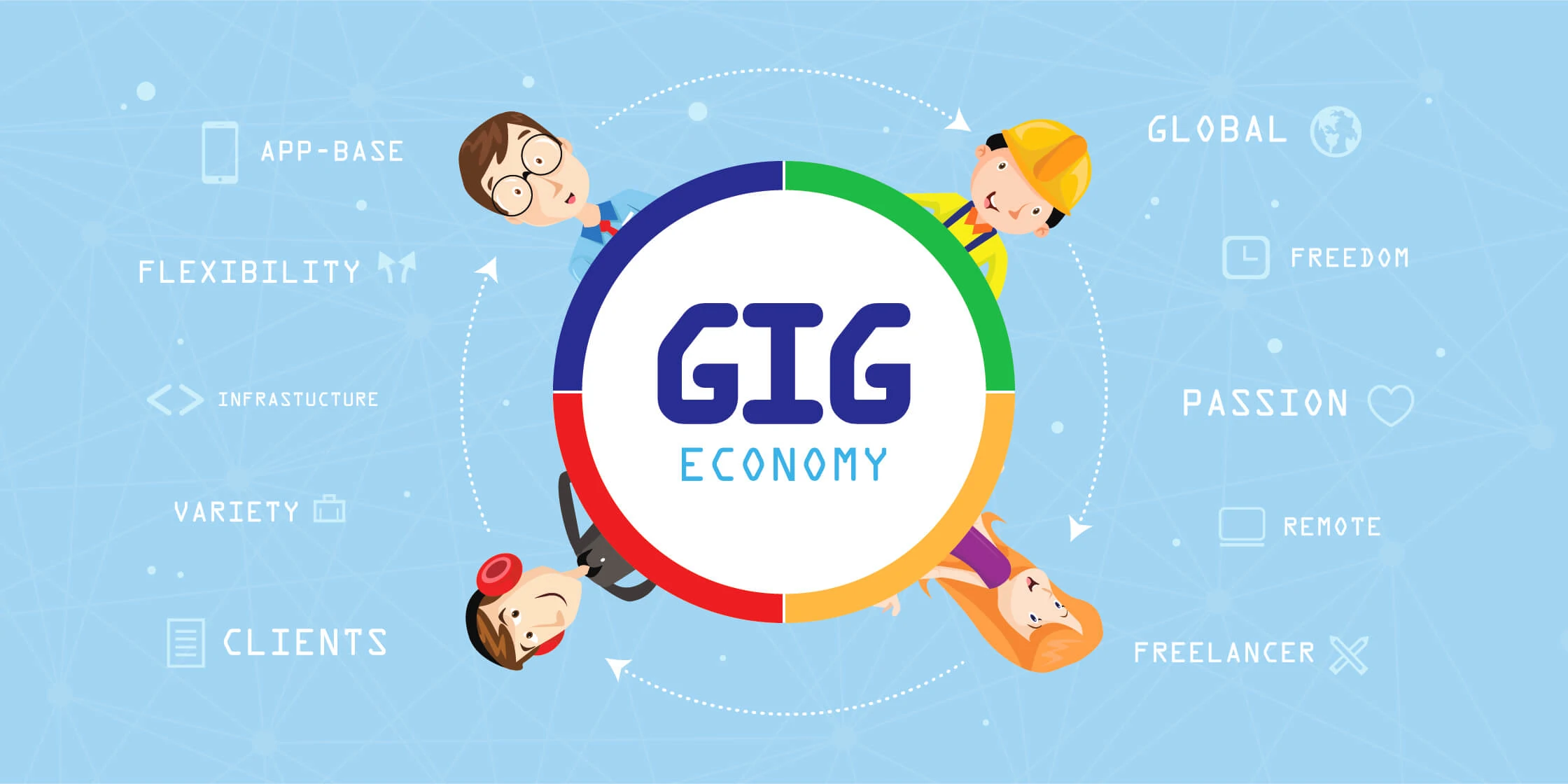Graduate students who drive for ride-hailing services, stay-at-home parents supplementing their income with part-time jobs, and high school students taking on odd jobs through food delivery apps. This new way of working, termed as “gig economy” is widely regarded as a significant development in the modern job market, with some hailing it as a major innovation for work-life balance and others viewing it as a significant shift in traditional employment relationships. But what exactly is the impact of this new economy on traditional career paths? In this blog, the experts of eduhelphub will talk about the concept, how it became popular, its impact on traditional career paths and how people should prepare for it.
What is meant by Gig Economy?
The gig economy refers to a free employment market characterized by temporary work model and companies recruit workers on short-term basis. This economy has grown in recent years as technology has made it easier for individuals to offer their services online and for companies to find and hire workers for short-term projects. It provides flexibility for both workers and companies, but also raises concerns about job security, benefits, and the future of traditional employment.
The Growth of the Gig Economy: Driving Factors
- The gig economy, categorized by short-term contract or freelance work, has seen a rise in popularity in recent years due to several factors. Firstly, the flexibility of the gig economy appeals to those who desire a more flexible work schedule compared to the rigidity of traditional employment hours.
- Moreover, high unemployment rates have pushed individuals to seek alternative sources of income and the gig economy provides that option, claims the custom essay writers service.
- Companies also benefit from the gig economy, as they can hire workers for specific projects without the commitment of full-time employment, thereby reducing costs. Workers also have the freedom to choose the gigs they wish to work on and are not tied down to a single company.
Impacts of Gig Economy on Traditional Career Paths
- Disruption of Traditional Career Paths
One of the most significant impacts of the gig economy has been the disruption of traditional career paths. Gone are the days when a person could expect to work at one company for their entire career and retire with a pension. The gig economy has made it easier for individuals to jump from one project or job to the next, providing greater flexibility in terms of what they do and when they do it.
- Positive and Negative Impacts on Workers
For workers, this change has both positive and negative implications. On the one hand, the gig economy offers flexibility, allowing workers to pick and choose the projects that interest them the most, and to work on their own terms. This can be especially appealing for those who prefer to have more control over their work-life balance. On the other hand, the lack of job security and benefits can be a disadvantage for gig workers, who must fend for themselves in terms of healthcare, retirement planning, and other benefits that are typically provided by an employer.
- Cost Reduction Benefit in case of Companies
For companies, the gig economy has become an attractive option, as they can hire workers for specific projects without committing to long-term employment. This can reduce the cost and risk associated with hiring and training new employees. However, the gig economy has also raised concerns about worker exploitation, as gig workers often earn less and receive fewer benefits than traditional employees.
How Can Employees Prepare Themselves for Gig Economy?
As the gig economy continues to grow, it is important for workers to be prepared and to understand the benefits and drawbacks of this type of work. For those who value flexibility and control over their work, the gig economy can be an ideal fit. However, workers in the gig economy must also be prepared to handle the challenges that come with this type of work, such as managing their finances and benefits.
- One way that gig workers can prepare themselves is by building a strong professional network. This can help gig workers to find new projects and clients, as well as provide support and resources when needed. Networking can also help gig workers to build their reputation and establish themselves as experts in their field.
- In addition, gig workers should consider taking advantage of online resources and tools, such as online marketplaces and financial management apps, to help manage their finances and find new work opportunities. These resources can make it easier for gig workers to manage their finances, stay organized, and find new work opportunities.
- Finally, it is important for gig workers to stay informed about the latest developments in the gig economy, such as changes in laws and regulations that may affect their work. According to https://essaywriterhelp.org/, by staying informed and proactive, gig workers can make the most of the opportunities presented by the gig economy and build a successful career.
Concluding Thoughts on Gig Economy
The gig economy is changing the way we think about work and career paths. As the gig economy continues to evolve, it will be important for workers, companies, and policymakers to find ways to ensure that gig workers receive fair compensation and benefits while also supporting the growth and stability of the gig economy.
